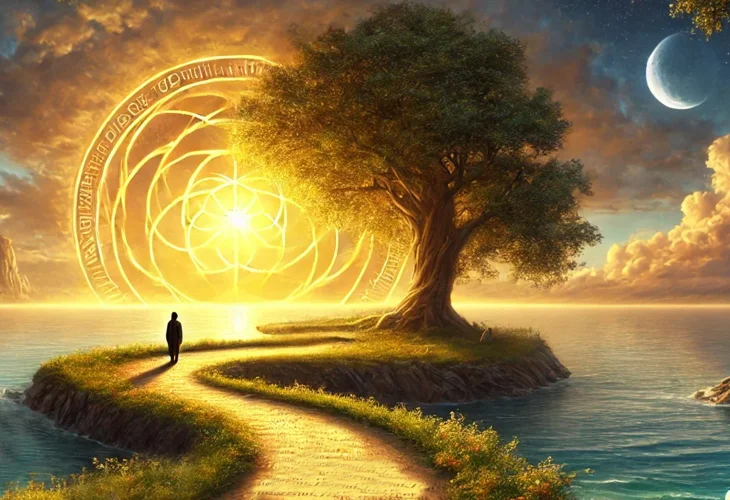Faith
What Is the True Meaning of Life? Exploring Purpose Beyond Pleasure and Desire
A deep philosophical look at why we were created, why pleasure isn't enough, and how real meaning must exist before we do.

Since ancient times, humans have asked themselves whether life has meaning, whether their actions matter, and what happens after death. Over the years, people have offered many answers. And yet, does every answer that claims to explain the meaning of life succeed in doing so? What happens if life has no meaning at all? It’s time to test your own answers.
Ask anyone if they know the meaning of life, and ideas will immediately pop into their head—thoughts they've reflected on privately, or things they've heard from others. Let’s examine some of the ideas circulating in the “marketplace of meaning” and see whether they hold up.
To begin, let’s define a basic condition: The meaning of life must be such that it would justify creating a person for that purpose from the outset. This matters because we don’t create something to last forever, but to fulfill a specific purpose. A chair is made to be sat on, not simply to exist. We want to find a purpose for human beings on that level. If the purpose of life is simply to fulfill our desires, then what was the point of creating us at all? We might as well say, “We were created to fill our childhood voids,” since our desires are deeply linked to our experiences. That would make us no different than a chair built just to last.
The Pursuit of Pleasure
One popular idea is that we live to enjoy life. Maximum pleasure equals a life fully lived. Is this view sustainable?
Let’s break pleasure down into parts. First, physical pleasure—say, eating chocolate. It tastes good, so I enjoy it. What happens if I eat a lot of chocolate? I get sick of it and I stop enjoying it. This indicates that my enjoyment depends on my desire.
Desire, however, doesn’t fit our base definition of life’s meaning, because there’s no point in creating someone just so they can desire something, only to fulfill that desire.
What about spiritual pleasures such as doing good, reading a book, or enjoying something inspiring? These too only feel pleasurable if we want them. Otherwise, we don’t enjoy them. Here too, spiritual pleasure is tied to desire.
This means that pleasure—whether physical or spiritual—cannot be the purpose for which we were created, because pleasure depends on desire, and desire didn’t exist before we were created. It therefore makes no sense to say we were created just to experience pleasure.
Existentialism: Choose Your Own Meaning?
Another popular philosophical view is existentialism. This view argues that each person chooses their own meaning in life.
This idea also fails to meet the basic condition that the purpose must precede the person. Beyond that, it’s a tragic view. It implies that people spend their lives chasing a purpose that isn’t truly theirs, but rather shaped by childhood wounds or life circumstances. They’re simply trying to heal what was missing, and that healing may not justify the pain that created the need in the first place.
Evolution: No Meaning at All?
Then there’s the view rooted in evolutionary theory. According to this theory, humans are the result of random processes. Life has no inherent meaning and there’s no purpose in suffering, joy, or in anything else.
Worse still, evolution implies that good and evil have no real meaning either—they are simply social constructs that happened to be useful for survival. Anyone who believes in evolution must accept that all the “good” they’ve pursued in life is ultimately meaningless.
The Only Path to Real Meaning
The only way to find true meaning in life is to recognize that human beings were created for the sake of goodness. For that goodness to have real meaning—not only subjective or personal meaning—it must have existed before we were created. It must have been the goal in advance.
Furthermore, for that goodness to be fulfilled, it must come with instructions—a system that instructs us how to achieve that good—not just a personal “choose your own good” approach.
The next time you think about the meaning of life, keep these ideas in mind. They might help you better understand why we’re really here.

